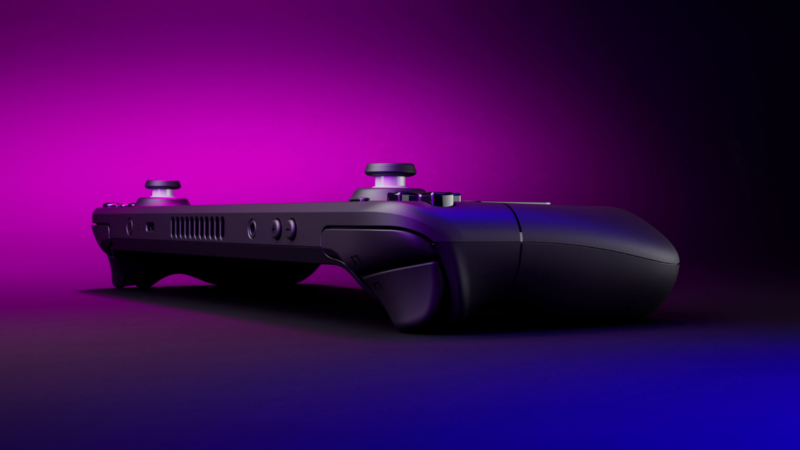
Steam Deck Is Reaching Its Limits in Games Like Plague Tale: Requiem
Oliver Mackenzie at Digital Foundry published an article discussing the capabilities of Valve’s Steam Deck in the latest AAA titles that were launched last year. In particular, he wanted to see whether or not the Steam Deck could deliver a solid 30 fps gaming experience in very graphically demanding titles, such as the highly demanding A Plague Tale: Requiem, Callisto Protocol, Gotham Knights, and more.
To refresh your memory, the Steam Deck is equipped with a Zen 2 quad-core CPU that boosts up to 3.5GHz, and an RDNA 2 iGPU equipped with 8 CUs and running up to 1.6GHz. This APU is certainly not a strong chip by today’s standards, but in the Steam Deck’s application, it has proved to be a surprisingly adequate gaming APU- as our review highlights.
Plague Tale: Requiem showed impressive results on the Steam Deck. Mackenzie was able to hit a solid 30 fps gaming experience, with just a couple of minor dips in more demanding areas. This was accomplished with the resolution optimizer in performance mode, and all visual settings set to low, with the exception of textures that were set to medium settings.
Despite running on low settings, the graphics hold up well, being equivalent to an Xbox Series S. However, since the game is upscaling from an internal resolution lower than 720P, pixel popping and fizzling are definitely problematic.
The Callisto Protocol is up next and is one of the most challenging games here to run on the Steam Deck. In terms of graphical fidelity, Mackenzie was able to use a mix of low and medium settings that performed favorably against current and last-generation Xbox consoles. However, frame rates proved to be an issue due to CPU bottlenecking issues that saw fps drop into the low 20s sporadically.
Gotham Knights is another title that did not run well on the Steam Deck. Despite the use of low visual quality settings and FSR 2 in performance mode, Gotham Knights was constantly dipping below 30 fps in the open-world area. Again, this is probably due to CPU bottlenecking. However, when fighting enemies in interior space, the game picks back up to a perfectly smooth 30FPS.
Need for Speed Unbound is the only racing title that was tested by Mackenzie. The game ran surprisingly well, hitting a mostly solid 30 fps with medium-quality settings at a resolution of 720P or 800P and a DRS target of 30Hz. But, hitching is still somewhat problematic in this title according to Mackenzie, with the game also being CPU bottlenecked in certain areas.
On a more positive note, The Witcher 3 Complete Edition shows a different story, with the game holding a solid 30 fps in almost all areas. Graphical settings used were a mix of medium and high settings at native resolution (800P) with TAAU enabled.
Uncharted 4 is the final game Mackenzie tested. This game ran the smoothest of all the titles, hitting a solid 30 fps. But this shouldn’t be too surprising considering the game was originally made in 2016, only being released to PC later last year. Mackenzie used the medium graphical preset for this title, in combination with the FSR 2 upscaler in quality mode to hit his 30FPS target.

As Mackenzie learned, the Steam Deck’s hardware is definitely showing its limits in these graphically demanding PC titles. Almost all games tested required the use of a resolution upscaler at an already very low native resolution of 1280 x 800, making image quality borderline playable in some cases. CPU bottlenecking was also problematic in most titles, and was the sole reason for some games not hitting a comfortable 30FPS.
That said, the Steam Deck is still pulling off a playable gameplay experience where it seemingly shouldn’t. The hardware requirements for most of these titles absolutely dwarf what the Steam Deck’s hardware actually possesses. Yet somehow, the console is still able to run these games with a gameplay experience rivaling last-generation consoles.
It’s hard to tell when the Steam Deck will no longer be able to play the most graphically demanding games the PC platform has to offer. But based on Mackenzie’s findings, it could be soon. And that doesn’t bode well for the company’s claim that a next-gen device won’t be focused on performance upgrades.
Game developers are beginning to switch to next-generation game engines such as Unreal Engine 5, and dropping last-generation console support in the process. This will undoubtedly make future AAA titles substantially harder to run on the Steam Deck’s Zen 2 APU.

